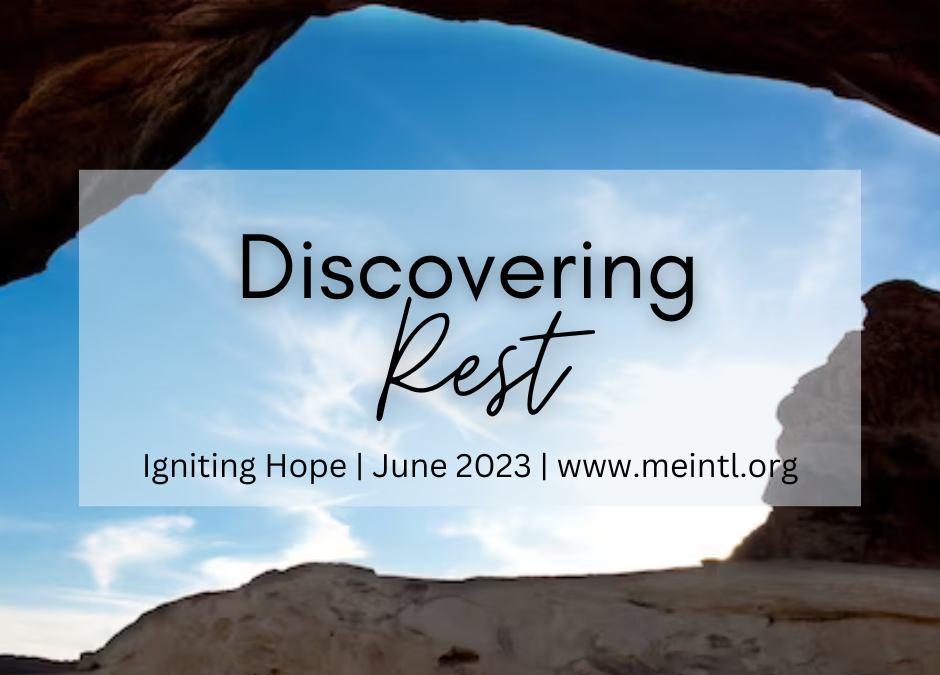Lord, You have always given
bread for the coming day;
and though I am poor,
today I believe.
Lord, You have always given
strength for the coming day;
and though I am weak,
today I believe.
Lord, You have always given
peace for the coming day;
and though of anxious heart,
today I believe.
Lord, You have always kept
me safe in trials;
and now, tried as I am,
today I believe.
Lord, You have always marked
the road for the coming day;
and though it may be hidden,
today I believe.
Lord, You have always lightened
this darkness of mine;
and though the night is here,
today I believe.
Lord, You have always spoken
when time was ripe;
and though You be silent now,
today I believe.[1]
The prayer you just read has been a great source of comfort to me over the past 6 years or so. I discovered it right after finishing 6 months at Capernwray Bible School in the UK and was heading off for 2 more months of Bible School in Greece before moving to the States for college. I kept returning to this prayer all throughout those two months in light of the upcoming move, and it became my guiding prayer for a while.
The prayer is part of the Celtic Daily Prayer’s evening office, and it’s one of the last prayers you say before falling asleep. The whole daily office is structured in such a way to lead you, in prayer, through the day in this cycle: In the morning, we pray to see God in the day and for his guidance throughout the day. In the middle of the day we pray that our actions would be established and we would work for His purpose and glory. In the evening we pray for God’s action and speak of how we wait for His hand; and, we remind ourselves — with the prayer above — that even if we can’t see what he’s up to right now, we believe that he is working. That’s how the day finishes, with an invitation to remember and trust, then rest.
There’s so much about this poem/prayer that I love. I love where it fits in the day. I love how it touches on so many different parts of life that can be unsettling. I love how abstract, yet rhythmic and repetitive it is. I love how the invitation of the poem is to remember God’s action and character; and, despite the fact we may not see that action now, we are invited to trust the action is present in whatever circumstance we find ourselves in.
I also really like how the poem doesn’t promise an outcome. We’re invited to remember and believe, but the belief is in God’s character, not necessarily in a specific outcome. The world could end tomorrow, but that does not change who God is, what he’s done, and what he will do. It’s a reminder I need often. And just as the poem doesn’t promise an outcome, nor does it minimize or take away from the emotion attached to the circumstances we’re in. It’s scary not to know what comes next. To not know where our next meal is coming from, or where we will live. It’s even scarier to do battle with our inner demons and not see change. But still, the invitation exists to remember who he is and trust his character.
I don’t know how this strikes you, but I’m really grateful that this is how we are being invited to finish our day. After working hard, showing up, giving ourselves to the process, and quite possibly having no indication that things will be different tomorrow, we are asked to believe that God is doing something. We’re asked to rest in that hope and wake up with expectation tomorrow.
[1] The Northumbria Community, Celtic Daily Prayers Book 1: The Journey Begins, Evening Prayer, Expressions of Faith.



0 Comments